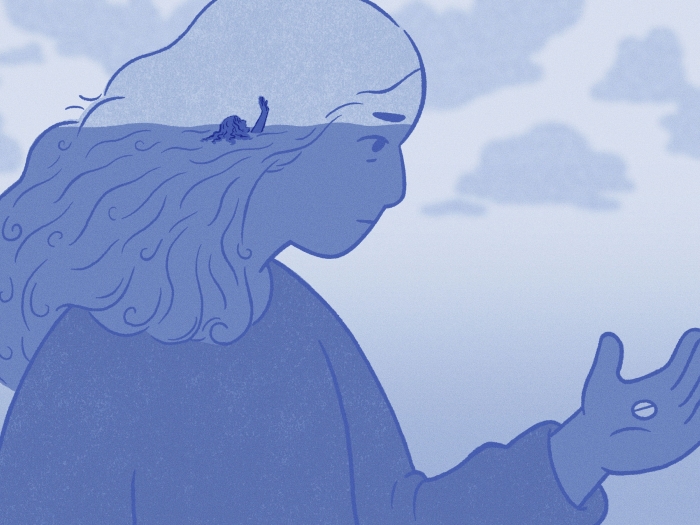The executive director of the U-M Depression Center talks about its mission to better equip young people to deal with the stresses of college life.
7:00 AM
Author |

One in 5 students battle depression, anxiety and related mood disorders during their college years. Suicide is the second-leading cause of death among people ages 15 to 34 in the U.S., according to the National Institute of Mental Health.
Depression is the most common underlying cause for these deaths.
LISTEN UP: Add the new Michigan Medicine News Break to your Alexa-enabled device, or subscribe to our daily audio updates on iTunes, Google Play and Stitcher.
Unfortunately, there is no single known cause for depression and related mood disorders, and more than half of those who suffer do not instantly improve with treatment.
Genetics, co-occurring medical illnesses, trauma, abuse, social media stresses, bullying, substance use, financial worries, school demands, relationship conflicts and expectations from family all play roles in causing depression and bipolar illnesses.
SEE ALSO: 6 Tools to Help Prevent Depression in College Freshman
In line with our mission to detect depression and bipolar disorders earlier, treat them more effectively, prevent recurrences and progression, counteract stigma and improve public policy, the University of Michigan's Depression Center has been addressing student mental health since its inception.
In fact, two of our flagship programs have helped improve the lives of thousands of students before they ever reach college campuses, to better equip them to deal with the stresses of college life.
The Peer-to-Peer (P2P) program
Launched in 2007, the P2P program began as a collaboration to create and enhance depression awareness and suicide prevention education, training and support by employing "voices" of peers and friends to help catalyze treatment-seeking and adherence.
Since then, the program has broadened to include a student-led component. More than 850 students have participated on P2P teams, more than 175 P2P student-run events have taken place, and tens of thousands of students have been reached through the awareness campaigns.
Stigma can be lessened.
The TRAILS (Transforming Research Into Action to Improve the Lives of Students) program
The TRAILS program, focusing on middle and high school students, has built a statewide network of coaches trained in evidence-based practices such as cognitive behavioral therapy and mindfulness. TRAILS coaches are paired with local school professionals to co-facilitate skills groups focused on reducing students' symptoms of depression and anxiety. The TRAILS program has now trained 350 mental health providers and is in 66 of 83 Michigan counties.
The Depression Center is also designing tailored websites to provide local, personalized guidance about how best to find help and sustain wellness in different parts of the country.
There is more work to be done
These and other initiatives are making a difference on campuses through awareness and early intervention. However, there is more work to be done.
These efforts also would be aided by knowing which clinical treatments are more effective for the many underlying causes of depression.
We have learned a lot from our work thus far: We have learned that the costs are huge and that society's needs are high. We know that early screening and measuring is essential and that earlier interventions lead to better outcomes. And we have learned clinical strategies help sort out different causes, but they need to be used more frequently by clinicians of all specialties.
MORE FROM MICHIGAN: Sign up for our weekly newsletter
We also know that multidisciplinary clinical approaches need to be adopted to maintain wellness once achieved. We underutilize preventive strategies such as exercise, nutrition and sleep hygiene. And we should be following people not for weeks, but for years or decades as is done for cancers.
For friends of an at-risk adolescent, try to understand what your peer may be going through and be supportive. Try to persuade your friend to see a counselor. If you think the person is in imminent danger, tell an adult. Encourage them to call the National Suicide Prevention Lifeline at 1-800-273-TALK (8255).
The Depression Center hosts an annual conference dedicated to student mental health every March. Next week during the conference, Dr. Greden will deliver the keynote address about the relationship between precision health and student mental health. To learn more, visit the U-M Depression Center.

Explore a variety of healthcare news & stories by visiting the Health Lab home page for more articles.

Department of Communication at Michigan Medicine
Want top health & research news weekly? Sign up for Health Lab’s newsletters today!





